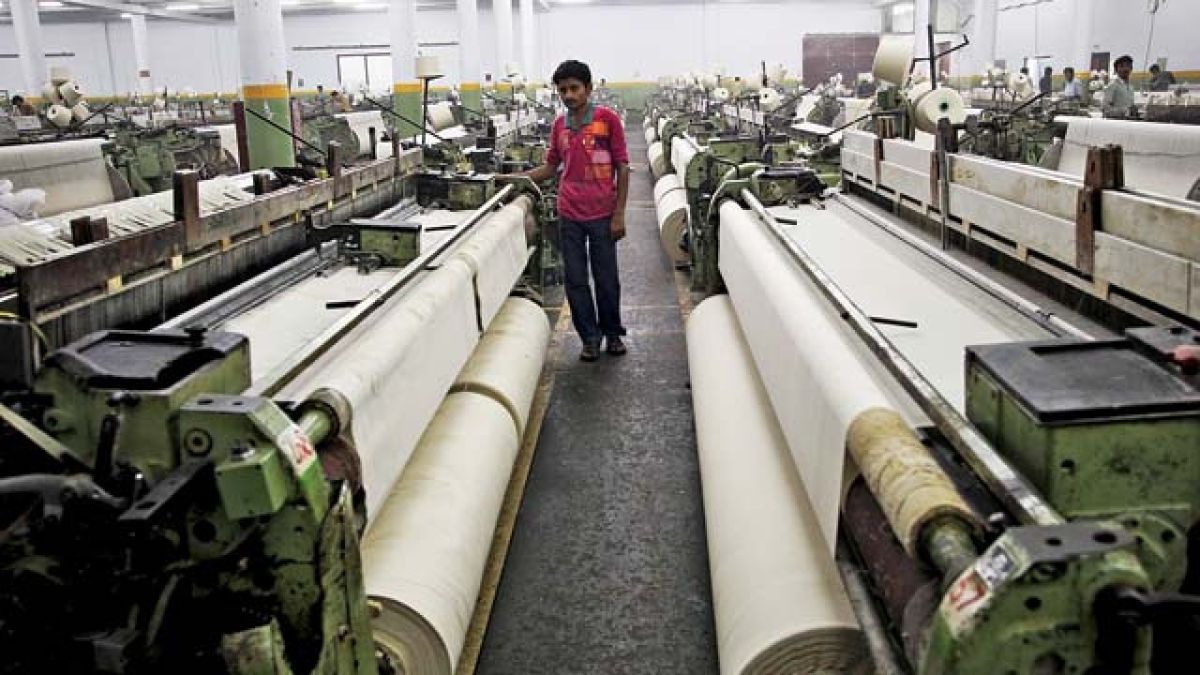IT’s Surat Weavers Vs Indian Filament Industry over BIS on yarn
The weavers' lobby is concerned about the impact on tens of thousands of jobs, so they're asking the Central Government to step in. Meanwhile, the Indian filament industry claims the weavers are helping Chinese importers by making up problems about the availability of international quality yarn in India.

Advertisement
Surat : As the October 5 deadline for the implementation of Quality Control Orders (QCO) for Bureau of Indian Standards (BIS) on Polyester Filament Yarn (PFY) approaches, tensions are rising in Surat between the powerloom weavers and the Indian Filament Industry.
The weavers’ lobby is concerned about the impact on tens of thousands of jobs, so they’re asking the Central Government to step in. Meanwhile, the Indian filament industry claims the weavers are helping Chinese importers by making up problems about the availability of international quality yarn in India.
The statement released by the Association of Synthetic Fibre Industry implies that the weavers’ opposition to the QCO adoption is not entirely altruistic. They say the weavers are functioning as middlemen for Chinese importers, exaggerating the lack of international-quality yarn in India to gain a competitive advantage. The group claims that over the last several decades, the Indian filament sector has regularly generated 95% 1st quality yarns for usage in a wide variety of weaving and knitting applications throughout the clothing, non-apparel, automotive, and technical textiles industries.
The organisation stressed the need of these high-quality yarns for use in local and foreign markets on high-speed water jet, air jet, rapier looms, and contemporary circular and warp knitting machines. Both the local and international textile industries rely heavily on Indian yarns.
The Indian Filament industry contends that due to the influx of Chinese products, the spinning industry in the country is operating well below its potential. Therefore, implementing QCO standards is essential to align with the Prime Minister’s vision of ‘Atmanirbhar Bharat’ or self-reliant India.
Conversely, the powerloom weaving industry in Surat argues that the region has the highest number of high-speed weaving and knitting machinery in the country. Around 1.20 lakh rapier, airjet, and waterjet machines have been installed in Surat, capable of producing globally competitive textiles. To operate these machines, double A grade yarn is needed, and there are few Indian spinners producing such yarn in sufficient quantities.
From January to July 2023, 78% of the yarn imported into India was double A grade. If BIS standards are enforced, the majority of these imports could cease, leading to the halt of high-speed machinery and a potential surge in unemployment.
Ashok Jirawala, president of the Federation of Gujarat Textile Weavers Welfare Association (FOGWA), explained, “There is no opposition to BIS standards, but Indian yarn spinners are not currently producing yarn according to these standards. The government postponed the QCO implementation twice, and we urge them to reconsider these orders for the greater benefit of the industry.”
Ashish Gujarati, former president of SGCCI, highlighted the significant increase in high-speed weaving and knitting machinery across textile hubs in India, including Surat. He stressed, “Double A standard yarn is crucial for producing cloth on machines like rapier, airjet, and waterjet. Weaving industries nationwide require 13 lakh tonnes of yarn annually, but local manufacturers can only supply 1.2 lakh tonnes. With the implementation of BIS standards, foreign yarn imports will decrease. Local spinners are currently unable to meet the quality and quantity demands, which could severely impact production.”
Advertisement

